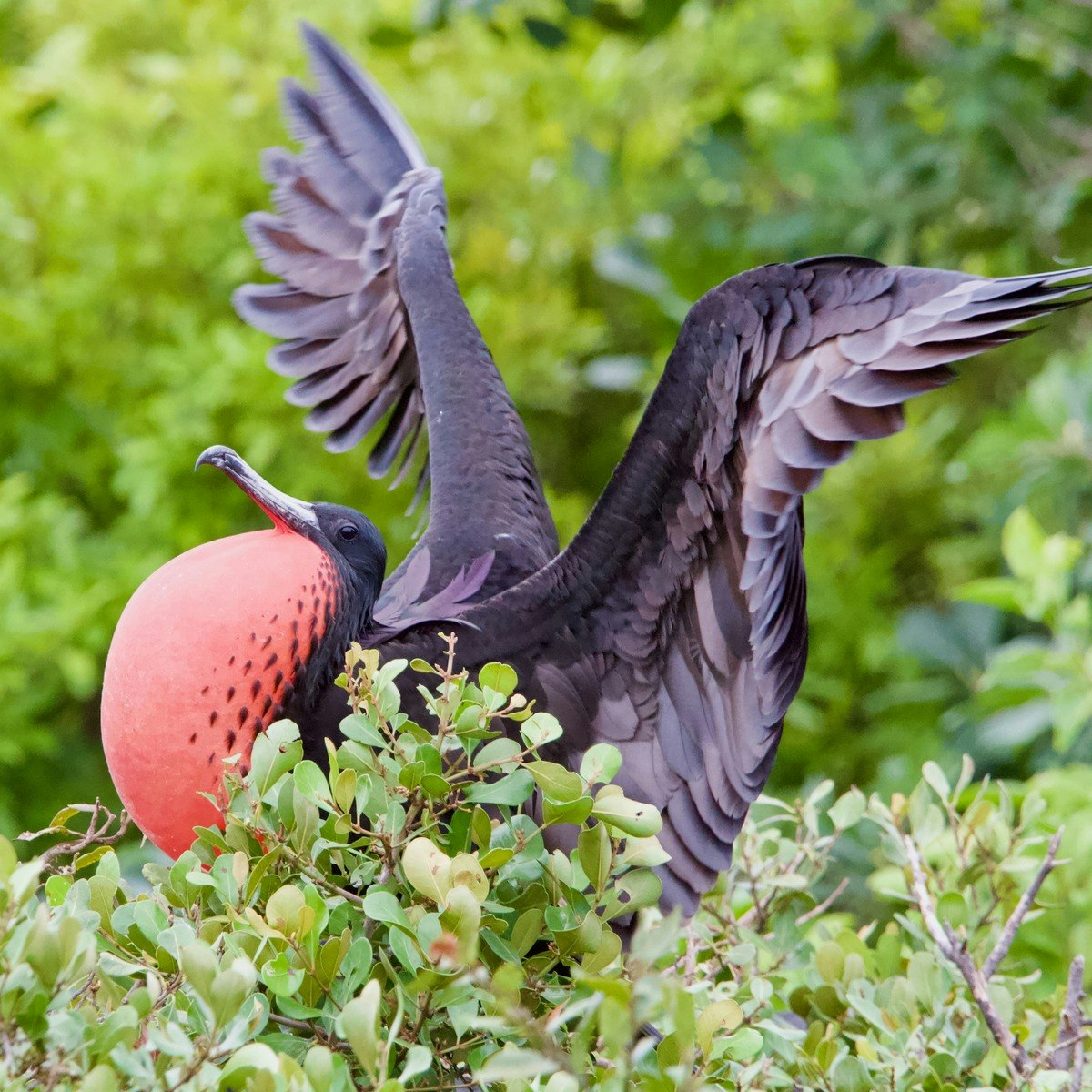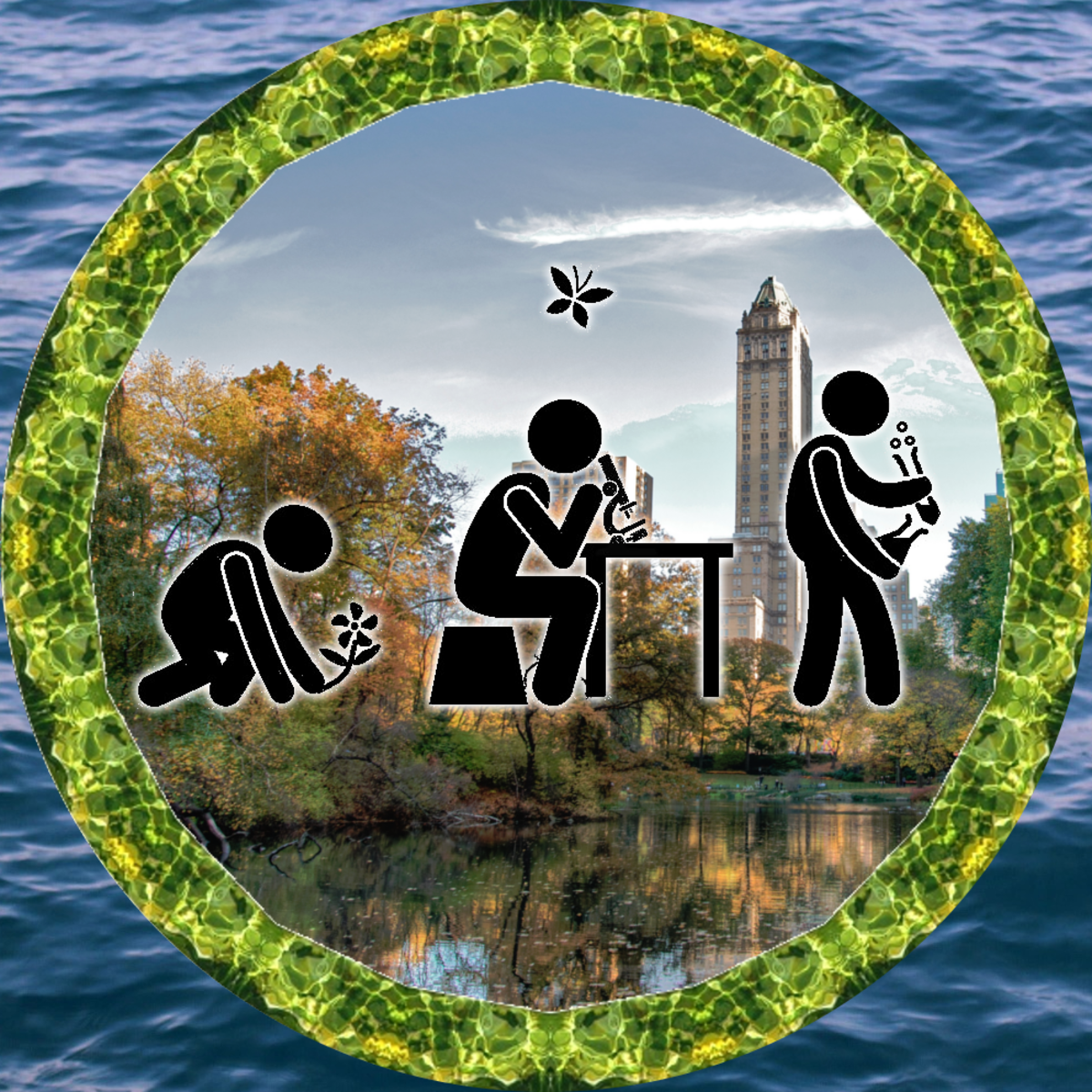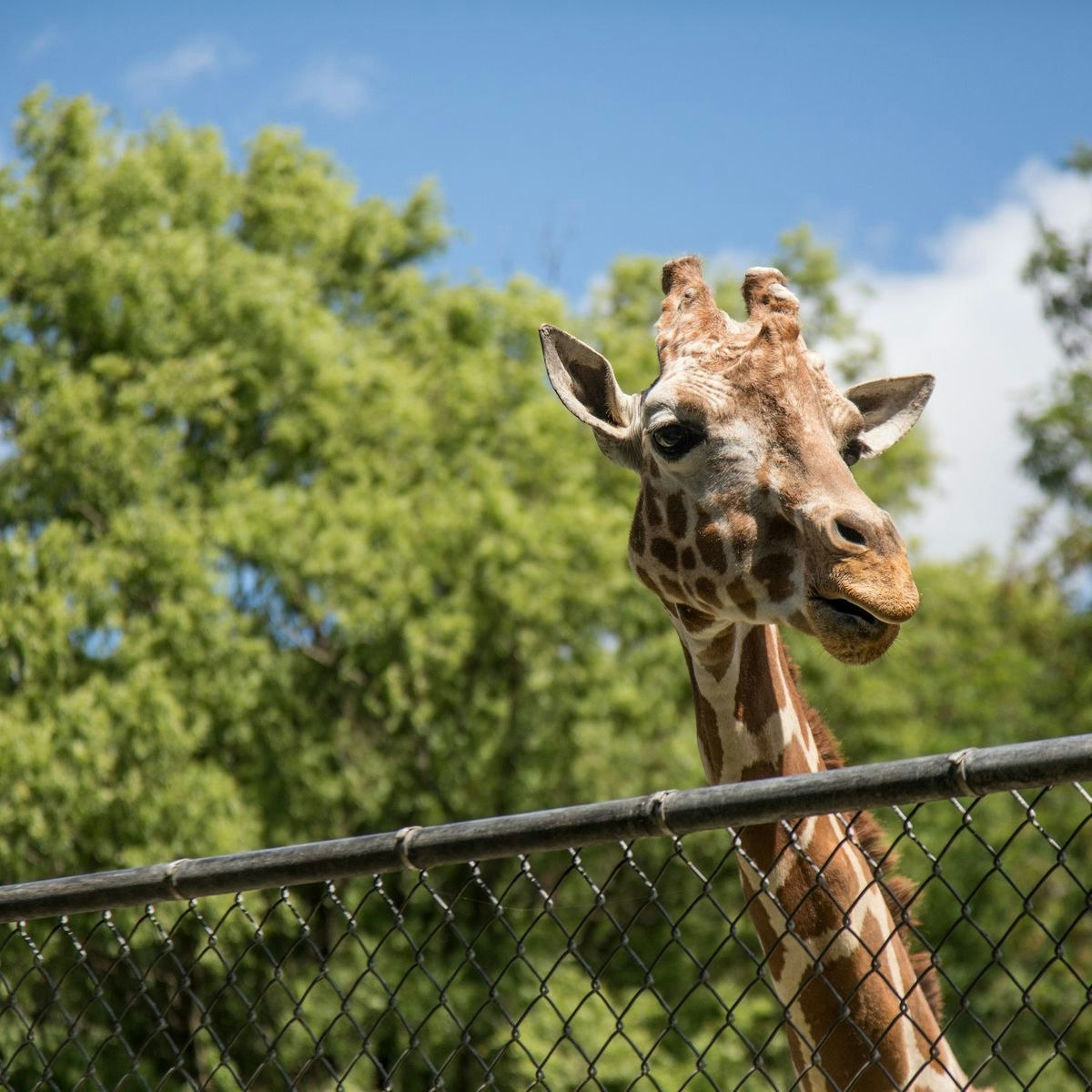Conservation Officer
Conservation Officer: Protecting Nature's Balance
A Conservation Officer, sometimes known as a game warden, wildlife officer, or environmental conservation police officer, serves as a specialized law enforcement professional dedicated to protecting natural resources, wildlife, and the environment. Their primary mission involves enforcing laws and regulations related to fish, wildlife, parks, forests, and environmental quality. They act as stewards of the land and water, ensuring that human activities align with conservation principles and legal statutes.
This career often attracts individuals passionate about the outdoors and wildlife preservation. It offers a unique blend of law enforcement duties with fieldwork in natural settings, from patrolling remote wilderness areas and waterways to engaging with the public. The role can be incredibly rewarding, offering daily opportunities to make a tangible difference in safeguarding biodiversity and environmental health for future generations.
Introduction to Conservation Officers
Understanding the role of a Conservation Officer begins with recognizing their dual function as both law enforcement personnel and resource managers. They are guardians of the natural world within their jurisdiction.
What is a Conservation Officer?
Conservation Officers are certified peace officers with the authority to enforce federal, state, or provincial laws, focusing particularly on those concerning natural resource conservation. Their objectives are multifaceted: preventing poaching and illegal trade of wildlife, ensuring compliance with hunting, fishing, and trapping regulations, protecting habitats from destruction or pollution, and promoting public safety within natural areas. They patrol vast territories, often covering thousands of square miles, interacting with hunters, anglers, park visitors, and the general public.
Their work environment is primarily outdoors, encompassing forests, lakes, rivers, mountains, and coastlines, often in rugged and remote locations. They operate vehicles, boats, ATVs, and sometimes aircraft or work on foot to monitor activities and respond to incidents. Their role is crucial in maintaining the delicate balance between human use of natural resources and the long-term health of ecosystems.
They strive to secure and protect natural areas, working strategically with conservationists, scientists, and the public to ensure resources are managed sustainably. This involves not just enforcement but also education and outreach to foster a sense of stewardship among resource users.
Historical Context
The concept of game wardens or conservation officers emerged as societies recognized the need to manage wildlife populations and prevent over-exploitation, particularly of game species favored for hunting and fishing. Early efforts focused primarily on enforcing hunting seasons and bag limits. Over time, the role evolved significantly, reflecting a broader understanding of ecological principles and the interconnectedness of environmental health.
Historically, the focus might have been narrow, centered on game animals and fish stocks. Today, conservation law enforcement addresses a wider array of issues, including endangered species protection, habitat preservation, pollution control, invasive species management, and even aspects of homeland security in some jurisdictions. The profession has become more complex, requiring a deeper understanding of environmental science, law, and public relations.
From the days of minimal regulations and enforcement challenges, the field has progressed alongside conservation science and public awareness. Increased environmental pressures, such as development and climate change, continue to shape the priorities and methods of conservation officers.
Conservation Officers vs. Related Roles
While often working closely together, Conservation Officers differ from Park Rangers and Environmental Scientists. Park Rangers typically focus on managing specific state or national parks, handling visitor services, interpretation, education, park maintenance, and enforcing park-specific rules, though some rangers also have law enforcement authority. Conservation Officers usually have broader jurisdiction, enforcing wildlife and environmental laws both inside and outside designated park boundaries, often with a stronger emphasis on hunting, fishing, and wildlife crime.
Environmental Scientists, on the other hand, are primarily focused on research, monitoring, and analysis. They study environmental conditions, assess impacts, and develop management strategies, but typically do not have law enforcement powers. Conservation Officers often collaborate with scientists, using their data to inform enforcement priorities and management decisions, and sometimes assisting with data collection during patrols.
Understanding these distinctions is key. While all three roles contribute to environmental protection, the Conservation Officer uniquely combines law enforcement authority with a specific focus on fish, wildlife, and natural resource laws across diverse landscapes.
Jurisdictional Variations
Conservation Officers operate within various governmental structures. Federal Wildlife Officers, often working for agencies like the U.S. Fish and Wildlife Service, enforce federal conservation laws, particularly concerning migratory birds, endangered species, and activities on federal lands such as National Wildlife Refuges. Their jurisdiction might cross state lines but is focused on federal statutes and properties.
State Conservation Officers (or Game Wardens) are employed by state agencies, typically Departments of Natural Resources (DNR) or Fish and Wildlife Agencies. They enforce state-level wildlife, environmental, and boating laws on both public and private lands within their state. Their responsibilities are often broader than federal officers, covering the majority of hunting, fishing, and environmental regulations encountered by the public.
In some regions, Conservation Officers may also work for local or tribal governments, enforcing specific local ordinances or tribal resource management codes. Additionally, some non-governmental organizations (NGOs) employ individuals in roles that support conservation efforts, although these typically lack law enforcement authority. The specific title, duties, and authority can vary significantly depending on the employing agency and jurisdiction.
Roles and Responsibilities
The daily life of a Conservation Officer is diverse, blending law enforcement with resource management, education, and public interaction. Their duties are critical for maintaining healthy ecosystems and safe recreational opportunities.
Law Enforcement and Wildlife Protection
The core responsibility of a Conservation Officer is law enforcement focused on natural resources. This includes patrolling assigned areas—often extensive and remote—to detect and investigate violations of fish and wildlife laws. They check hunting and fishing licenses, ensure adherence to seasons and bag limits, and investigate illegal activities like poaching, baiting, and trespassing.
Officers gather evidence, interview suspects and witnesses, make arrests, issue citations, and prepare cases for court testimony. They enforce regulations related to boating safety, ATV/snowmobile operation, and environmental protection, such as laws against polluting waterways or illegal dumping. Anti-poaching efforts are a significant focus, involving surveillance, undercover operations, and responding to reports from the public, sometimes requiring officers to work irregular hours, including nights and weekends.
Their authority often extends to enforcing general criminal and traffic laws, especially on state or federal properties like parks, forests, and wildlife management areas. This ensures public safety and protects resources from vandalism or misuse.
These books provide insight into the legal and forensic aspects often encountered in wildlife law enforcement.
Public Education and Community Outreach
Beyond enforcement, Conservation Officers play a vital role in educating the public. They interact with outdoor recreationalists, landowners, and community groups, explaining laws and promoting ethical behavior, such as safe hunting practices and responsible resource use. They often give presentations at schools, fairs, and sportsmen's clubs about wildlife conservation, safety regulations, and the role of their agency.
This outreach helps build positive relationships between the agency and the community, fostering voluntary compliance with regulations and encouraging public participation in conservation efforts. Officers might teach hunter education courses, boating safety classes, or workshops on wildlife identification. They serve as visible representatives of their agency, answering questions and addressing concerns from the public regarding wildlife and environmental issues.
Building trust and understanding within the community is crucial. Educated and engaged citizens are more likely to respect regulations and report violations, acting as valuable partners in conservation.
Developing skills in communication and outreach is important. These courses offer foundational knowledge in engaging with diverse groups.
Environmental Monitoring and Data Collection
Conservation Officers often contribute to scientific understanding by monitoring environmental conditions and wildlife populations. During patrols, they observe wildlife health, identify potential disease outbreaks, and note habitat conditions. They may assist biologists with wildlife surveys, population counts, animal tagging or relocation efforts, and collecting biological samples.
This field data is essential for effective resource management, helping scientists track trends, assess the impacts of regulations, and make informed decisions about conservation strategies. Officers might document observations of endangered or threatened species, track the spread of invasive species, or monitor water quality. Their presence across vast landscapes provides valuable on-the-ground information that complements formal research efforts.
Their duties can include inspecting commercial operations like bait dealers or fish markets, ensuring compliance with regulations, and collecting data on harvests. This blend of enforcement and monitoring provides a holistic approach to resource management.
Understanding biodiversity and ecological principles is fundamental for monitoring tasks. These courses provide a strong background.
Collaboration with Scientists and Policymakers
Conservation Officers work collaboratively with various partners. They provide field observations and enforcement perspectives to biologists and ecologists, aiding in research and the development of management plans. They might report on the effectiveness of existing regulations or highlight emerging issues that require scientific investigation or policy changes.
They also interact with policymakers by providing information on resource issues and the practical implications of proposed legislation. Their firsthand experience in the field offers valuable insights into how laws translate into real-world outcomes. This collaboration ensures that conservation strategies are both scientifically sound and enforceable.
Furthermore, officers often coordinate with other law enforcement agencies (local, state, federal) on investigations, search and rescue operations, or emergency response efforts like wildfires or floods. This interagency cooperation is essential for addressing complex issues that cross jurisdictional boundaries.
Understanding how different sectors collaborate on environmental issues is key. This course explores landscape-level governance.
Formal Education Pathways
Aspiring Conservation Officers typically need a combination of formal education, specialized training, and practical experience. The specific requirements vary by agency, but certain pathways are common.
Relevant Undergraduate Degrees
While some agencies may accept candidates with an associate's degree or a combination of education and experience, a bachelor's degree is often required or strongly preferred, especially for state and federal positions. Relevant fields of study include Environmental Science, Wildlife Management, Biology, Ecology, Forestry, Natural Resource Management, or related biological sciences.
Some agencies also value degrees in Criminal Justice or Law Enforcement, particularly if combined with coursework or experience in natural resources. A strong academic background provides foundational knowledge in ecological principles, wildlife identification, habitat management, and relevant laws and regulations.
Coursework in areas like conservation biology, fisheries management, botany, zoology, and environmental policy is highly beneficial. Strong communication and writing skills, often developed through humanities and social science courses, are also essential for report writing and public interaction.
These courses offer introductions to key biological and evolutionary concepts relevant to conservation work.
Certifications and Law Enforcement Training
Beyond a degree, becoming a Conservation Officer requires graduating from a law enforcement training academy. This academy training is often mandated by the state's Peace Officer Standards and Training (POST) commission or an equivalent federal body. Academies cover standard police procedures, defensive tactics, firearms proficiency, emergency vehicle operation, criminal law, and constitutional law.
Conservation Officer candidates typically attend either a standard police academy followed by specialized agency training, or a dedicated conservation law enforcement academy, such as the Western Conservation Law Enforcement Academy (WCLEA) in Canada. This specialized training adds components specific to the role, like wildlife forensics, boating and off-road vehicle operation, search and rescue techniques, and detailed instruction on fish, game, and environmental laws.
Additional certifications may be required or beneficial, such as First Aid/CPR, Wilderness First Responder, Hunter Education Instructor, Boating Safety Instructor, or specialized certifications related to firearms or defensive tactics. Continuous training throughout an officer's career is standard to maintain certifications and stay updated on laws and techniques.
Fieldwork and Internship Requirements
Practical experience is highly valued and often a prerequisite for entry-level positions. Agencies look for candidates who demonstrate a commitment to the outdoors and conservation. Relevant experience can be gained through seasonal jobs, internships, or volunteer work with parks departments, fish and wildlife agencies, conservation organizations, or environmental research projects.
Activities like assisting biologists with fieldwork, working as a park aide, participating in habitat restoration projects, or volunteering at nature centers provide valuable hands-on skills and demonstrate initiative. This experience helps applicants understand the realities of working in natural resource management and law enforcement.
Getting to know current Conservation Officers and participating in ride-alongs can also provide insight into the job and strengthen an application. Fieldwork develops practical skills like navigation, species identification, equipment operation, and interacting with the public in outdoor settings.
These courses can help build practical observation and survival skills often needed in fieldwork.
Graduate Programs for Specialization
While not typically required for entry-level field positions, a master's degree or Ph.D. can be advantageous for career advancement, particularly into supervisory, management, research, or policy roles within conservation agencies. Graduate studies allow for specialization in areas like wildlife biology, fisheries science, conservation genetics, environmental policy, or natural resource management.
Advanced degrees can open doors to leadership positions, specialized investigative units (e.g., wildlife forensics), or roles focused on program development and administration. For those interested in the scientific aspects of conservation, a graduate degree provides the research skills necessary for roles involving population modeling, habitat analysis, or ecological research.
Some officers pursue graduate education later in their careers to enhance their expertise or transition into administrative or specialized roles. However, for most field officer positions, a bachelor's degree combined with academy training and relevant experience is the standard pathway.
Skills and Competencies
A successful Conservation Officer requires a unique blend of technical expertise, interpersonal abilities, physical capability, and legal understanding. Mastery of these skills is essential for effective performance in this demanding role.
Technical Skills
Officers need proficiency in various technical skills relevant to natural resource management and law enforcement. Species identification (fish, wildlife, plants) is fundamental, as is knowledge of ecological principles and habitat requirements. Familiarity with equipment like boats, ATVs, snowmobiles, and sometimes aircraft is often necessary for patrolling diverse terrains.
Navigation skills using map, compass, and GPS are critical for operating in remote areas. Increasingly, technological proficiency is required, including the use of computers for report writing and data analysis, radio communication systems, and specialized tools like Geographic Information Systems (GIS) for mapping and spatial analysis, or remote sensing technologies like drones for surveillance and monitoring.
Skills in evidence collection and preservation, basic forensic techniques (like tracking or DNA sampling), and firearms proficiency are core law enforcement competencies adapted to the conservation context.
These courses introduce foundational technical skills in remote sensing and GIS, which are increasingly important in conservation.
Soft Skills
Effective communication and interpersonal skills are paramount. Officers must interact professionally and courteously with a diverse public, including recreational users, landowners, and potential violators. They need strong conflict resolution skills to de-escalate tense situations and handle confrontations safely and effectively.
Public speaking skills are valuable for educational outreach and presenting information clearly in court or community meetings. Officers must be able to write clear, concise, and accurate reports detailing their activities and investigations. Teamwork and collaboration are essential when working with fellow officers, biologists, other agencies, and the public.
Integrity, ethical conduct, sound judgment, and the ability to work independently with minimal supervision are crucial character traits. Officers often work alone in isolated areas and must make critical decisions under pressure.
These books discuss animal ethics and behavior, providing context for interactions involving wildlife and human perceptions.
Physical Fitness and Survival Training
The job of a Conservation Officer is physically demanding. Officers must be able to hike long distances over rough terrain, carry heavy gear, operate vessels in challenging weather, and potentially restrain suspects. Most agencies require candidates to pass rigorous physical fitness tests measuring strength, endurance, and agility as part of the hiring process and often require officers to maintain fitness standards throughout their careers.
Survival skills are essential for safely navigating remote and potentially hazardous environments. This includes proficiency in wilderness first aid, navigation, shelter building, and coping with extreme weather conditions. Officers may face dangers from wildlife encounters, harsh terrain, or armed individuals, making physical preparedness and survival knowledge critical for personal safety.
Training often includes defensive tactics, use of force scenarios, and specialized skills like swift water rescue or ice rescue, depending on the geographic area and agency responsibilities.
These courses cover essential survival and first aid skills applicable to wilderness environments.
Legal Knowledge
A thorough understanding of applicable laws and regulations is fundamental. This includes federal, state/provincial, and sometimes local statutes related to fish and wildlife, environmental protection, boating, forestry, and public lands. Officers must know the elements of various offenses, rules of evidence, and procedures for arrest, search, and seizure.
Knowledge of constitutional law, particularly concerning citizens' rights during investigations and enforcement actions, is critical. Officers must stay current with changes in legislation, court rulings, and agency policies that affect their work. This requires ongoing training and personal study.
Understanding the legal framework ensures that enforcement actions are conducted lawfully and effectively, and that cases presented for prosecution are well-founded and properly documented.
This book provides a comprehensive overview of wildlife law, a critical area of knowledge for Conservation Officers.
Career Progression for Conservation Officers
A career as a Conservation Officer offers opportunities for growth and specialization. Advancement typically depends on experience, performance, education, and taking on additional responsibilities.
Entry-Level Roles
New officers typically begin in field patrol roles after successfully completing academy training and a field training program under the supervision of experienced officers. Initial assignments often involve general patrol duties within a specific geographic district, responding to calls, enforcing laws, conducting inspections, and engaging in public outreach.
Entry-level positions focus on developing core competencies, learning the specifics of the assigned district (geography, resources, common issues), and gaining practical experience in law enforcement and resource management. Some individuals might start in related technician or seasonal roles within the agency before securing a sworn officer position.
These early years are crucial for building a foundation of skills, knowledge, and reputation within the agency and the community.
Mid-Career Advancements
With several years of experience, officers may have opportunities for advancement to supervisory positions, such as Corporal, Sergeant, or Lieutenant, depending on the agency's rank structure. Supervisors oversee teams of field officers, coordinate patrols and investigations, review reports, manage schedules, and handle more complex administrative duties.
Mid-career officers might also specialize in specific areas based on interest and agency needs. This could include becoming a K-9 handler, joining a special investigations unit focusing on major cases or covert operations, becoming a training officer for new recruits, or specializing in areas like boating enforcement, wildlife forensics, or public affairs.
Advancement often requires demonstrating leadership potential, strong performance in previous roles, and sometimes additional training or education. Competition for specialized roles and supervisory positions can be significant.
Senior Roles and Leadership
Senior Conservation Officers with extensive experience and leadership skills may advance to higher ranks like Captain, Major, or Chief, overseeing larger geographic regions, divisions, or even the entire law enforcement branch of the agency. These roles involve significant administrative, budgetary, and policy-making responsibilities.
Experienced officers might also move into roles focused on policy advising, legislative liaison work, or program management within the agency's headquarters. These positions leverage field experience to shape broader conservation strategies and agency direction.
Leadership roles require strong management skills, strategic thinking, and the ability to navigate complex organizational and political landscapes. Advanced degrees may be beneficial for reaching the highest levels of agency leadership.
Lateral Moves and Related Fields
The skills and experience gained as a Conservation Officer can open doors to related fields. Some officers may transition into roles as environmental consultants, park managers, or conservation program managers for non-profit organizations or private companies.
Others might pursue careers in environmental law, advocacy, or policy analysis, using their practical understanding of resource issues and enforcement challenges. Experience in investigations and law enforcement could also lead to opportunities in other federal or state law enforcement agencies.
The interdisciplinary nature of the job provides a broad skill set applicable to various environmental and public safety professions. A career as a Conservation Officer can serve as a strong foundation for diverse pathways within the broader conservation and environmental sector.
Challenges and Risks
While rewarding, a career as a Conservation Officer comes with significant challenges and inherent risks. Awareness of these difficulties is crucial for anyone considering this path.
Physical Dangers
Officers face various physical dangers in their daily work. Patrolling remote areas can lead to encounters with dangerous wildlife, exposure to extreme weather conditions, and risks associated with navigating treacherous terrain on foot, by vehicle, or by boat. Search and rescue operations often involve hazardous conditions.
As armed law enforcement officers, they also face risks associated with confronting armed individuals, particularly poachers or those involved in other illegal activities. Encounters can occur in isolated locations, often far from backup, increasing the potential danger. Accidents involving vehicles, boats, or ATVs while on patrol are also a concern.
Maintaining physical fitness, situational awareness, and proficiency in defensive tactics and first aid are essential for mitigating these risks.
Survival and first aid training are crucial for mitigating physical risks. These courses provide relevant skills.
Bureaucratic and Funding Constraints
Conservation agencies, like many government entities, often face budget limitations and bureaucratic hurdles. This can result in understaffing, inadequate equipment, limited training opportunities, and challenges in implementing desired conservation programs. Officers may feel frustrated by a lack of resources to address all the issues they encounter.
Navigating agency procedures, paperwork requirements, and political influences can sometimes feel cumbersome. Funding for conservation programs can be subject to political shifts and economic downturns, impacting staffing levels and operational capabilities. Some reports indicate nationwide struggles to recruit and retain officers due to factors like budget constraints and low wages compared to other law enforcement roles.
Officers need resilience and adaptability to work effectively within these constraints, focusing on prioritizing tasks and leveraging available resources efficiently.
Ethical Dilemmas
Conservation Officers frequently encounter situations involving ethical considerations. Balancing the need for strict enforcement of regulations with community relations and the needs of local populations can be challenging. Decisions about when to issue a warning versus a citation, or how to handle subsistence hunting/fishing issues, require careful judgment.
Officers might face pressure from various interest groups (e.g., hunters, environmentalists, industry) and must navigate these pressures while upholding the law impartially. Maintaining objectivity and fairness in enforcement actions, especially in small communities where officers may know many residents, requires strong ethical principles.
The core mission involves protecting natural resources, which can sometimes conflict with individual desires or economic activities, leading to complex ethical scenarios that demand thoughtful resolution.
These courses delve into ecological relationships with religion and institutions, touching upon ethical dimensions.
Mental Health Impacts
The demands of the job can take a toll on mental health. Officers often work long, irregular hours, including nights, weekends, and holidays, which can disrupt personal life and lead to burnout. Frequent exposure to stressful situations, including confrontations, accidents, and sometimes gruesome scenes (e.g., poaching sites, drowning recoveries), can contribute to stress and trauma.
Working in isolation in remote areas can lead to feelings of loneliness or disconnection. Lack of immediate backup in dangerous situations can also be a significant stressor. Agencies are increasingly recognizing the importance of mental health support for officers, but resources may vary.
Building strong personal support systems, utilizing available agency resources, and developing healthy coping mechanisms are important for managing the mental and emotional challenges of this career.
Ethical Considerations in Conservation Enforcement
The practice of conservation law enforcement involves navigating complex ethical landscapes where ecological goals intersect with human values, rights, and needs.
Balancing Human Needs and Ecological Preservation
A central ethical challenge lies in balancing the mandate to protect natural resources with the legitimate needs and activities of human populations. Regulations designed to conserve wildlife or habitats can impact livelihoods, recreational opportunities, or traditional practices. Officers must enforce these regulations fairly while remaining sensitive to their human impact.
This requires understanding the socioeconomic context of the communities they serve and communicating the rationale behind conservation laws effectively. Finding solutions that accommodate both conservation goals and human needs, where possible within the legal framework, is often part of the role. However, the primary duty remains the enforcement of conservation law.
Case studies often highlight conflicts between development projects and habitat protection, or between commercial fishing quotas and the economic viability of fishing communities, placing officers at the forefront of these tensions.
These books explore the complex relationship between humanity and the natural world, providing context for these ethical considerations.
Indigenous Rights and Collaboration
In many regions, conservation enforcement intersects with the rights and traditional practices of Indigenous peoples. Treaties, land claims, and cultural heritage often grant specific rights related to hunting, fishing, and gathering on traditional territories. Officers must be knowledgeable about these rights and engage with Indigenous communities respectfully and collaboratively.
Effective conservation often requires partnerships with Indigenous groups, incorporating traditional ecological knowledge into management plans and enforcement strategies. Building trust and mutual understanding is essential, moving beyond a purely enforcement-based relationship towards co-management and shared stewardship where appropriate and legally mandated.
Navigating jurisdictional complexities and historical tensions requires cultural sensitivity, strong communication skills, and a commitment to reconciliation and respecting Indigenous sovereignty and rights within the bounds of conservation law.
Transparency and Accountability
As with all law enforcement, transparency and accountability are crucial for maintaining public trust. Conservation Officers wield significant authority, including the power to detain, arrest, and use force. It is essential that this authority is exercised judiciously, ethically, and in accordance with legal standards and agency policies.
Clear reporting procedures, mechanisms for public complaints, and internal affairs investigations help ensure accountability. The increasing use of technologies like body cameras can also enhance transparency, although their implementation in remote field settings presents unique challenges.
Officers must be prepared to justify their actions and decisions, both within their agency and potentially in court or public forums. A commitment to procedural justice and treating all individuals with respect, regardless of the situation, underpins ethical enforcement.
Case Studies of Ethical Conflicts
Examining real-world case studies can illuminate the ethical complexities faced by Conservation Officers. Examples might include dealing with wildlife that habitually damages private property, enforcing unpopular regulations based on contested science, managing conflicts between different user groups (e.g., hunters vs. hikers), or investigating colleagues suspected of misconduct.
Analyzing these situations helps develop ethical reasoning skills and prepares officers for the challenging decisions they may face. Discussions within agencies and professional associations often focus on best practices for navigating such dilemmas.
Understanding historical conflicts, like the "clam wars" mentioned in some regions involving disputes over shellfish harvesting rights, provides context for ongoing resource management challenges and the evolution of conservation ethics and law.
Technological Trends Impacting Conservation Officers
Technology is rapidly transforming how Conservation Officers conduct their work, offering new tools for surveillance, data analysis, and communication, while also presenting new challenges.
Drones and Remote Sensing
Unmanned Aerial Vehicles (UAVs), or drones, are increasingly used for environmental monitoring and surveillance. Drones equipped with high-resolution cameras or thermal imaging can survey large, inaccessible areas quickly, monitor wildlife populations, detect illegal activities like poaching camps or unauthorized habitat alteration, and assist in search and rescue operations.
Remote sensing technologies, including satellite imagery and Synthetic Aperture Radar (SAR), provide valuable data for habitat mapping, tracking land-use changes, and monitoring environmental conditions over broad scales. Officers may use this data to identify patrol priorities or support investigations.
These technologies enhance efficiency and safety, allowing officers to cover more ground and gather information from perspectives previously unavailable. However, their use also raises privacy concerns and requires specialized training and data management protocols.
This course introduces the application of SAR technology in ecosystem monitoring.
Data Analytics and Predictive Policing
Advances in data analytics and machine learning (AI) are being applied to conservation law enforcement. By analyzing historical poaching data, patrol records, environmental factors, and other relevant information, predictive models can help identify potential hotspots for illegal activity. This allows agencies to allocate limited patrol resources more effectively.
AI-powered tools can also automate the analysis of data from camera traps or acoustic sensors, rapidly identifying species or detecting gunshots, freeing up officer time for other tasks. Real-time data dashboards can provide officers with up-to-date information on incidents, resource locations, and potential threats.
While promising, the use of predictive analytics in law enforcement requires careful consideration to avoid bias and ensure fairness. Integrating these tools requires investment in technology infrastructure and training for officers in data interpretation and use.
Body Cameras and Accountability Tools
Similar to trends in mainstream policing, some conservation law enforcement agencies are exploring or implementing the use of body-worn cameras (BWCs). BWCs can enhance transparency, document interactions with the public, provide valuable evidence for investigations and prosecutions, and potentially de-escalate confrontations.
The deployment of BWCs in conservation settings presents unique challenges, including battery life in remote areas, data storage for lengthy patrols, and durability in harsh environmental conditions. Policies regarding when cameras must be activated and how footage is managed are critical components of implementation.
Other digital tools, like electronic ticketing systems and mobile data terminals, streamline reporting and improve access to information in the field, increasing efficiency and accountability.
Climate Change Adaptation Technologies
As climate change impacts ecosystems, technology plays a role in monitoring these changes and informing adaptation strategies. Conservation Officers may use tools to track shifts in species distribution, monitor drought or fire conditions, or assess the health of climate-sensitive habitats like coral reefs or wetlands.
Technologies for early warning systems (e.g., for wildfires or floods) help protect both natural resources and public safety. Data gathered by officers in the field contributes to larger datasets used by scientists and policymakers to develop climate adaptation plans.
Understanding and utilizing technologies related to climate monitoring and response will likely become an increasingly important aspect of the Conservation Officer role in the future.
These courses explore sustainability and related environmental topics, providing context for adaptation efforts.
Frequently Asked Questions
Here are answers to some common questions about pursuing a career as a Conservation Officer.
What are the typical salary ranges and job stability like?
Salaries for Conservation Officers vary significantly based on the employing agency (federal, state, local), geographic location, experience level, and education. According to the U.S. Bureau of Labor Statistics (BLS), the median annual wage for fish and game wardens was $57,710 as of May 2018, with the top 10% earning over $80,140. Some sources cite average salaries ranging from around $55,000 to $75,000, depending on the source and specific definition used. Lower-end salaries might start around $42,000, while senior officers can earn significantly more.
Job stability is generally considered good, as positions are typically within government agencies. However, hiring can be very competitive, and agency budgets can fluctuate, sometimes leading to hiring freezes or staffing shortages, as highlighted in some reports. The BLS projected slow job growth (around 1.6% to 4.3% depending on the specific timeframe cited in sources) for the field through the 2020s, with most openings arising from the need to replace retiring officers.
Factors like low pay compared to other law enforcement roles and demanding working conditions can sometimes lead to retention challenges within the profession, according to some sources like OPSEU/SEFPO regarding Ontario officers.
What is the work-life balance like, especially in remote postings?
Work-life balance can be challenging. Conservation Officers often work irregular schedules, including nights, weekends, and holidays, particularly during peak hunting, fishing, or recreational seasons. Long hours are common, and officers are often on call to respond to emergencies or violations.
Assignments in remote or rural areas are frequent, which can mean significant travel time within a large patrol district and time away from home. Isolation can be a factor in these postings. While the job offers unparalleled access to the outdoors, the demands on time and the unpredictable nature of the work can impact personal life and family time.
However, many officers find deep satisfaction in the autonomy, the connection to nature, and the mission-driven aspect of the work, which can compensate for the demanding schedule. Benefits packages often include paid time off, but flexibility may be limited during busy periods.
Can I advance without a graduate degree?
Yes, advancement within the field ranks (e.g., to Sergeant, Lieutenant, Captain) is typically based on experience, performance, leadership skills, and competitive promotional processes, rather than requiring a graduate degree. Most field officers and many supervisors hold bachelor's or associate's degrees.
However, a graduate degree (Master's or Ph.D.) can be an asset for certain specialized roles or for advancing into higher-level administrative, policy, or research positions within the agency headquarters. While not essential for a successful field career or standard supervisory progression, it can provide a competitive edge for specific pathways.
Focusing on gaining diverse field experience, developing strong leadership and communication skills, and excelling in current duties are key factors for advancement regardless of holding a graduate degree.
Are there international opportunities for Conservation Officers?
Direct employment as a sworn Conservation Officer is typically tied to specific governmental jurisdictions (federal, state/provincial, local) within a country, requiring citizenship and meeting local certification standards. Therefore, transferring directly as an officer to another country is generally not feasible.
However, experience in conservation law enforcement and resource management can be valuable for international conservation work through NGOs, intergovernmental organizations (like the UN), or consulting firms. These roles might involve training international counterparts, advising on anti-poaching strategies, managing conservation projects, or developing policy.
Opportunities may exist within federal agencies that have international responsibilities related to wildlife treaties or combating international wildlife trafficking. These roles often require significant experience and potentially language skills or specialized expertise.
What is the likely impact of automation and AI on the role?
Automation and Artificial Intelligence (AI) are expected to augment rather than replace Conservation Officers. Technologies like drones, remote sensors, AI-powered camera traps, and data analytics can enhance efficiency in monitoring vast areas, detecting illegal activities, and analyzing population trends. This allows officers to focus more on complex investigations, community engagement, and targeted enforcement efforts.
Tasks like routine patrols in accessible areas or basic data collection might see some level of automation, but the core functions requiring human judgment, interpersonal skills, legal authority, and physical intervention are unlikely to be fully automated. Technology will likely serve as a powerful tool to support officers, improving their effectiveness and safety.
Officers will need to adapt by developing skills in using and interpreting data from these new technologies. As noted by sources like SEVENSEAS Media and Zanza Africa, AI is already being used for tasks like identifying species from sounds or images and predicting deforestation risks, changing how some conservation work is done.
How can someone transition from an unrelated field?
Transitioning into a Conservation Officer role from an unrelated field is possible but requires deliberate preparation. Key steps include acquiring the necessary education (often a bachelor's degree in a relevant field like environmental science, biology, or criminal justice), gaining relevant experience (volunteering or working seasonally with conservation/parks agencies), and meeting all basic requirements (age, citizenship, driver's license, clean record).
Networking with current officers and agency staff can provide valuable insights and guidance. Candidates must be prepared to meet the rigorous physical fitness standards and pass background checks, psychological evaluations, and polygraph exams common in law enforcement hiring. Attending a law enforcement academy is a mandatory step.
Highlighting transferable skills from a previous career (e.g., communication, problem-solving, technical skills) is important. It's a competitive field, so persistence, dedication, and demonstrating a genuine passion for conservation and law enforcement are crucial for a successful transition.
Embarking on a career as a Conservation Officer is a significant commitment, blending a passion for nature with the demands of law enforcement. It requires dedication, physical and mental resilience, and a strong ethical compass. For those drawn to protecting wildlife and wild places, it offers a unique and impactful career path, albeit one with notable challenges. Careful research, preparation, and acquiring relevant education and experience are essential first steps.


























